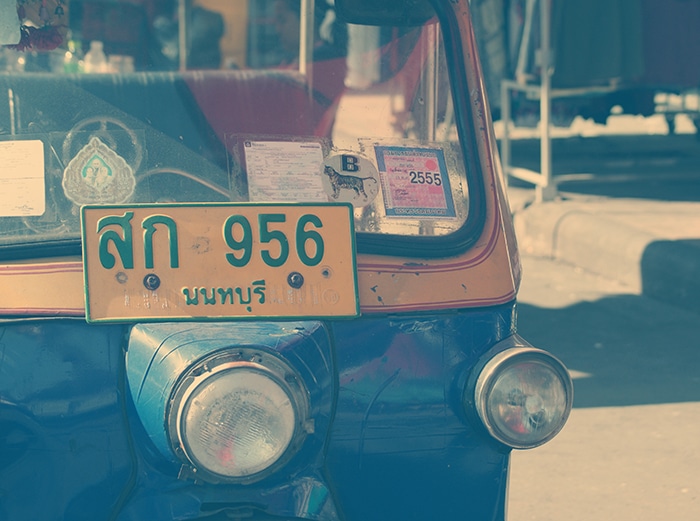We have decided to know more about Aatika’s job, who has been working with Cultures Connection for about 3 years now. She is an English-Urdu translator.
Today, we have decided to know more about Aatika’s job, who has been working with Cultures Connection for about 3 years now. Her job consists in translating English documents into Urdu (texts, subtitled videos…).
1. Could you explain to us where the Urdu language comes from? Is it related to the Islamic culture?
Urdu language originates from Hindustani and Middle Indo-Aryan languages and greatly influenced by Arabic and Persian. The word Urdu itself is derived from Turkish meaning ‘Army’. Its verbs have their roots from Sanskrit language.
The Urdu language received recognition and patronage under the British Raj when the British replaced the Persian and local official languages of North Indian Jammu and Kashmir state with the Urdu and English language in 1837.
It is the national language and lingua franca of Pakistan, and an official language of six states of India. It is also one of the 22 official languages recognized in the Constitution of India (Source: BBC).
Urdu is related to the Muslim Culture in the sense that its growth started within Muslim culture. It also comes close to Arabic since both are right hand scripts.
2. How difficult is to translate Urdu language? Anything else you want to say about that language?
Urdu language is very systematic in term of word construction, grammar and sentence structure. However, it poses some challenges because each noun has masculine or feminine gender and uses formal and informal verbs more like French. Another bigger challenge is the right hand script especially for those who are not used to it. It has a vast vocabulary due to presence of Turkish, Arabic, and Hindi words. It has a rich literature and once you know the language, you’ll thoroughly enjoy it! Besides, it does not contain abbreviations like other languages so the expressions and meaning are always clear though a little lengthy.
3. Is Urdu your mothertongue? When and where did you learn the translation English to Urdu?
Urdu is my mother tongue as well as Pashto. English is a second language in Pakistan and therefore, most schools in the urban area use English as the medium of instruction. Hence, I learned it in school and when I got to the university level, I decided to get my Masters degree in English literature.
4. As a freelance English-Urdu translator, which kind of documents do you have to translate? I’ve heard Urdu is in competition with English in Pakistan, in the fields of administration, education…etc.
I have done Urdu translation for different kinds of documents. From birth and marriage certificates to newspaper articles, contracts and technical manuals to audio/video files not to forget the school transcripts, medical insurance, healthcare and academia. I have heard too that the government is officially changing English to Urdu which I’m sure would be a big challenge.
5. Is it important for you to do these Urdu translations, for example to make communication between countries easier and better, to allow people in Pakistan to really understand the content of the messages you translate for them?
It is extremely important for me to use the proper term according to the context so that its communicated properly and accurately and Urdu speaking people understand the message witch is translated.
6. Do you have ethic rules concerned your job?
Yes I do; I believe in punctuality, sincerity, trust, quality, standard, proper communication through effective wordings. Besides I do not translate/interpret information that contradicts my values and beliefs towards humanity in general and my culture/society/religion in specific.
7. How did you start your career as a professional translator (studies, training, travel)? Did you specialize in an area in particular? Medical translation? Economical translation? Law translation?
I was working full time job in US and somehow I didn’t like the environment. I started looking for something that I can do from home at my own schedule. Hence, the translation work popped up. My training was the book reading, both in Urdu and English that I used to do a lot. My degree in English literature gave an added advantage to the scenario. Also going through different documents’ translation from English into Urdu and Urdu into English, I realized that I can play effective role in communicating the true messages in and from my mother tongue.
Also, in Pakistan, the students get into translation work as their major mother tongues are Pashto, Punjabi, Sindhi, Balochi, Siraiki, Kohistani and many more and to get education they have to learn the National Language Urdu and international Language English.
8. Where do you live now ? Have you got any other job? What are your next projects, both in your professional and private lives?
I live in United States and I run my own small translation company. I am a licensed skin care professional as well and I manage this business from my home too. I’m also pursuing my master’s degree here in United stated in Project Management from George Washington University. My plan is to implement the practices and learning from my masters program into my translation services.
Thank you very much Aatika!
Discover our translation agency.



